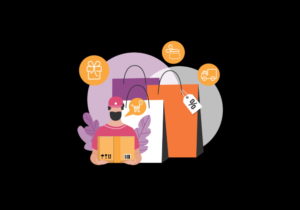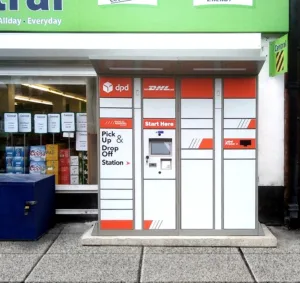By Nicole Kivel, Director, Retail Media, Criteo
Today, we all face an unprecedented global pandemic. Coronavirus has drastically altered our day-to-day lives and it’s creating a feeling of extreme uncertainty. During such times, it’s crucial that the marketing and advertising industry is supporting the UK’s businesses in navigating a sensitive approach to consumer engagement.
As the world leans into news sources on a minute-to-minute basis, it’s never been more important to support the open internet in order to provide all people with free access to information. We have a responsibility to protect the digital ecosystem by supporting the businesses that fund it; including our clients and industry partners.
With shops in the UK shut for the foreseeable future, ecommerce and online advertising is the only channel – at least in the short term – for businesses to reach their audiences. It’s a fine line for brands and marketers to continue engaging with consumers while being sensitive to everyone’s current lifestyle changes and challenges.
Our conversations with clients have made it clear that everyone is questioning how best to optimise efforts to connect with consumers and drive business results while remaining sensitive to the ongoing challenges the world is facing. We partner with some of the UK’s biggest high street and ecommerce names, and we’re seeing a positive change in the way those retailers and brands are adjusting their approach to be sensitive and informative during the pandemic.
How are you seeing omnichannel retailers re-focusing their e-commerce business?
- Depending on the vertical, allocating resources to those in need for ease of access of necessities. For example, most supermarkets have prioritised certain delivery slots for the elderly and vulnerable.
- Communication is paramount to ensure consumers feel safe purchasing from the e-commerce site. Clear detail on offering contactless delivery and the methods being deployed by the retailer for safety through the supply chain are must for all e-commerce businesses.
- Engagement is another core step. This is a pivotal need for retailers in two facets: keep the consumer embraced with the brand for the future and foster discretionary purchases. Many retailers are doing a great job of this by offering links to articles around health and wellbeing or developing their own blogs/podcasts. Space NK for example has been curating product content around at home spa/relaxation while also offering Zoom events with brand partners on subjects such as make up tutorials, mindfulness and other topical items.
Which shopping categories are most heavily impacted right now?
- Social distancing efforts have already radically altered people’s daily routines with over half of consumers in the UK (52%) planning to shop more online as a result of COVID-19
- We’ve been analysing our data from the UKs top retailers and brands, and we predict three phases of consumer spend:
- shock stockpiling for FMCGs which will evolve into a steady plateau as shoppers adjust to the new normal for this vertical.
- A shift to discretionary categories as the reality of lockdown sets in and the need for personal care and entertainment increases
- The establishment of a new normal across all online categories with levels above 2019 for the period but lower than the March/early April peaks
- Stockpiling behaviour peaked in early March with purchases of long shelf-life products such as tinned goods, soap, and hand sanitizer, now with no need to refresh those items consumers are feeling secure that their homes are in order on the necessities we are seeing a number of categories seeing significant YOY growth:
- With work from home implemented across all possible sectors, computer and technology needs to enable this was seen by the increase in sales of Monitors, Laptop and other related items.
- Personal Care sub categories such as hair dye and grooming tools saw upwards of 170% growth as the reality of the inaccessibility to these services requires in home solutions
- Fitness equipment and outdoor home/toys saw a similar trajectory as consumers looked to keep fit in the absence of gym access and how best to capitalise on the changing weather.
Many brands are doing the most adjusting to their marketing around messaging – what are some of the messaging challenges in retargeting that retailers and brands are facing right now?
- Being sensitive to the macro conditions at play for consumers. A solution is to focus advertising based on user behavior and intent, powered by AI, ensuring customers are being delivered content that is relevant.
- In the 2019 Criteo Brand Loyalty study, 41% of shoppers said purchasing decisions are based on a brand’s values. Ensuring consumers are aware of the safety measures being implemented not only for delivery but for the workforce is vital. This can be tackled through PR, messaging in ad campaigns but importantly clearly denoted on landing pages and their website.
How can brands and retailers better support society’s most vulnerable people during this time?
- Consumers are looking for businesses to step up and help others, rather than just conducting business as usual
- Ensure dedicated access for elderly and vulnerable. Many UK grocers are working with the NHS to identify this population set, are addressing this and ensuring the methods being implemented are clearly communicated to the nation.
- Acts of goodwill can go a long way in driving brand loyalty, such as repurposing skills and tools for good
- For example, a fashion company making surgical masks or breweries producing hand sanitizer
- According to a recent survey conducted by mindshare, 67% of consumers expect companies to donate supplies, and half of those surveyed expected companies to donate funds to help those in need










